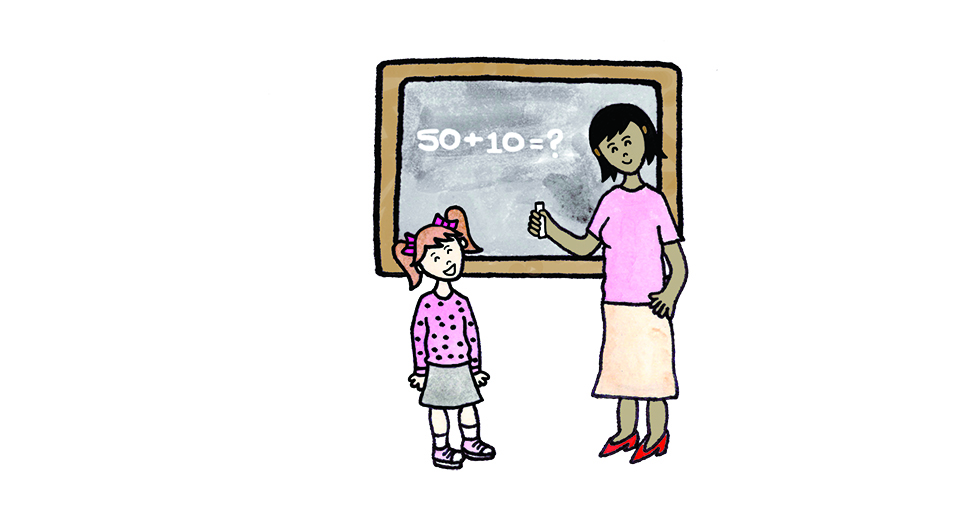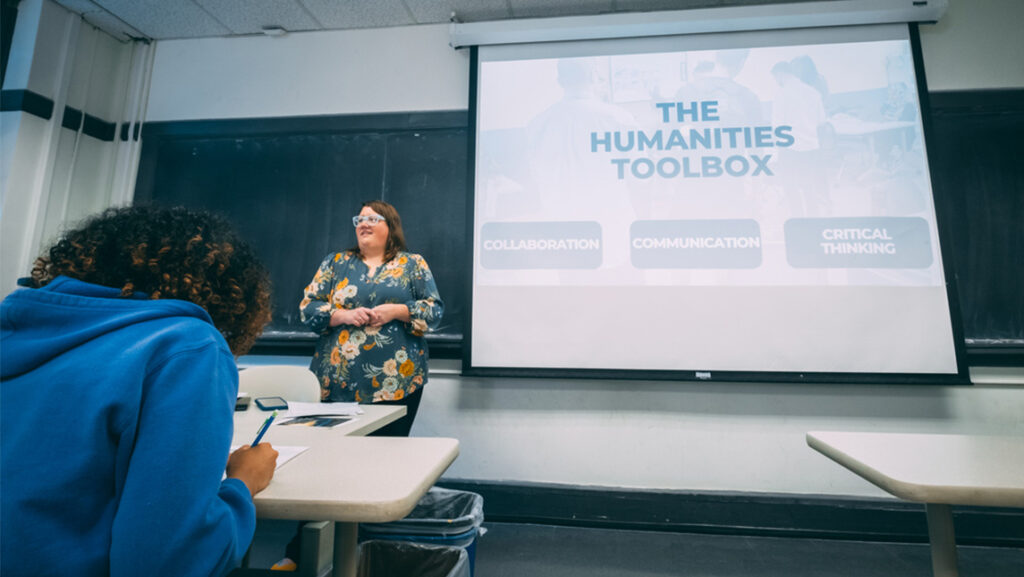Excerpt, spring 2016 UNCG Research Magazine
In laying the foundation for school readiness and a lifetime of success, we know that quality of parent-child interactions and the home environment is critical. But quality in other child care environments, including preschools and child care centers, is just as crucial.
It’s important for parents to know what an early childhood program offers, how effective their teachers are, and where the curricula are strong. In 1999, HDFS faculty Dr. Deb Cassidy, Dr. Linda Hestenes, Dr. Sharon Mims, and Dr. Steve Hestenes began collaborating with the N.C. Division of Child Development and Early Education to help parents make these important choices.
Their long-running N.C. Rated License Assessment project, which has received over $50 million in funding, rates child care programs throughout the state — currently over 7,000 programs. Of these, 45 percent of child care centers and approximately 11 percent of homebased programs have earned the top, five-star rating.
The N.C. Rated License Assessment project is just one of many ways UNCG is helping improve the overall quality of child care and education statewide. Another example? In conjunction with the N.C. Department of Public Instruction, HDFS Associate Professor Catherine Scott-Little is providing technical support for a new North Carolina K-3 assessment system. The system collects data on students from kindergarten through third grade, to help individualize their teaching and learning. Teachers, support staff, and families provide information for the assessment from observations, conversations, work samples, and more.

Teachers are better prepared and can better personalize teaching strategies when they understand how children learn. The K-3 Assessment system will arm teachers with a more complete picture of each of their students, improving their instruction and helping to meet their individual needs. With the information from the assessment Scott-Little is helping to design, teachers can more effectively target and teach to areas where high-need children need the most help.
A well-educated, prepared teaching staff is the biggest factor in achieving a five-star rating in the current N.C. Rated License guidelines. But finding the best qualified teachers to choose from can be difficult in the current environment of student loan debts and low teacher wages statewide. UNCG is taking steps to help grow our pool of highly educated teachers and to make sure they are supported and paid a living wage to keep them in the field.
HDFS Professor Deborah Cassidy has led the charge in preparing North Carolina teachers for more than two decades. Her latest focus is the EQuIPD (Education Quality Improvement & Professional Development) program. Funded by a Smart Start grant from the Guilford County Partnership for Children, EQuIPD is bringing professional development directly to existing early childhood professionals in Guilford County.
“Traditionally, early childhood professionals struggle to find the time and resources to get the continuing education and professional development they need,” says Cassidy. “Through this program, our staff brings interconnected services, such as peer coaching and training, directly to teachers and directors in early childhood settings. Together, we are implementing strategies we know have a direct impact on increasing the quality of early care and education.”
Another example of efforts in this area, says Cassidy, is UNCG’s mentoring program, which pairs teachers working in higher-quality programs with those working in lower-quality programs over a four month period. Mentors — who receive a stipend — meet regularly with mentees to discuss problems, strategies, and tactics. These conversations help identify opportunities for reaching children, as well as actions that might hamper a child’s academic progress. The connections are designed to give teachers a safe, reliable sounding board to analyze problems.
“The relationships that develop are more important than the content discussed. Being an early-education teacher can be isolating,” Cassidy says. “Having someone to discuss issues with can be invaluable.”

It’s also important, Cassidy says, for teachers to feel comfortable instructing students on complicated subject matters. To foster that confidence, UNCG supports community-training events that raise awareness of early-education topics through keynote speakers and workshops. For example, a recent session offered guidance for teaching science and math in age-appropriate ways. The hope, she said, is these sessions will enhance teachers’ abilities to create strong curricula that reach children of all readiness levels.
But having high-quality teachers who know how to reach students and who have targeted curricula that teach to every student’s needs means nothing if those teachers don’t make it into or stay in the classroom. There’s only one way to ensure high quality teachers are available, Cassidy says. Current and future educators must receive salaries that accurately reflect the time and effort that goes into the job.
To highlight this dire need, HDFS hosts Worthy Wage Day, an event that invites community leaders and politicians to work a child-care job for two hours, earning a teacher’s hourly pay — $10.97. They’re presented an honorary check during a press conference and are given the opportunity to discuss their experience.
Not only does Worthy Wage Day give community leaders a first-hand view of what teaching and caring for young children actually requires, but it also highlights the dire income insecurity experienced by many of North Carolina’s early-education teachers. Up to 45 percent receive income support. In fact, many can’t afford to enroll their own children where they work. Until this inequality is sufficiently addressed, Cassidy says, the state will continue to struggle to maintain a well-educated, dedicated, quality teacher workforce.

The best foot forward. It’s what we all want for our children in those first few years. But, the question is — how do we get there?
Nationally and locally, debates rage. It’s difficult to find consensus on the best way to educate our children or even prepare them to be educated. One thing we can be sure of? It’s no simple task. It will require a lot of work and collaboration to get it right.
UNCG is leading the way. Here, researchers have investigated — sometimes for years — what it takes to make sure children are healthy and ready to learn. And, now, investigators are combining their knowledge, resources, and networks to meet these challenges directly.
Faculty and staff, from the UNCG Department of Human Development and Family Studies to the UNCG Center for Youth, Family, and Community Partnerships, conduct basic research, translate research into evidence-based practice, and help create local, state, and national educational policy. As they reach out to families, help towns and cities identify and intervene with struggling children, and teach professionals vital skills for the classroom, these investigators have one goal in mind — giving every child the right start.



